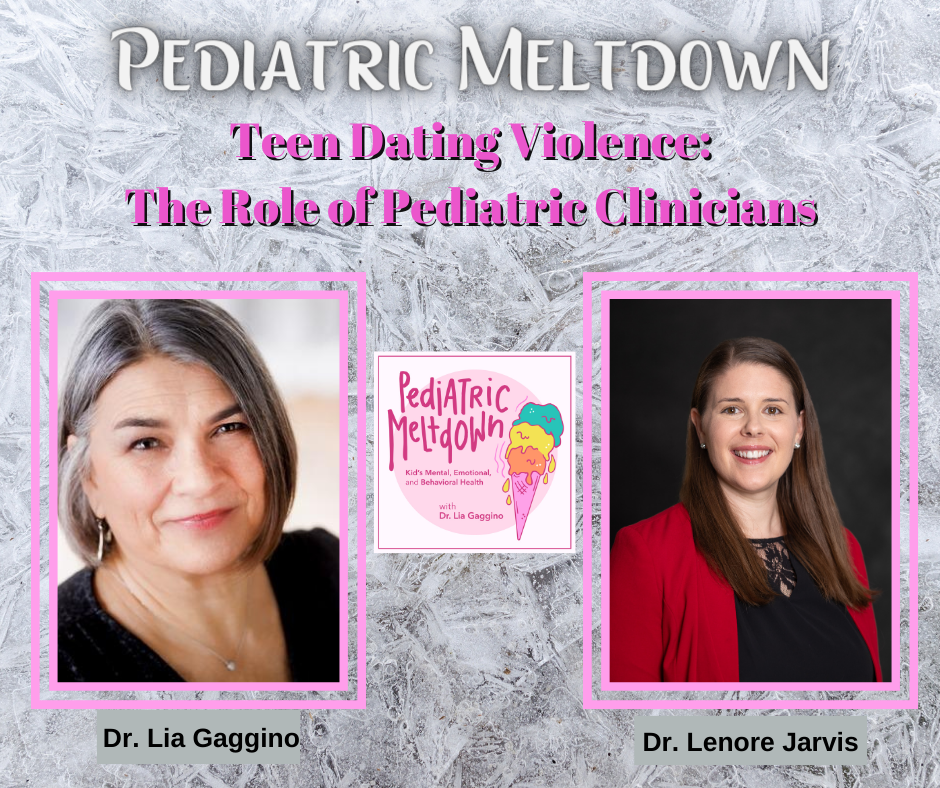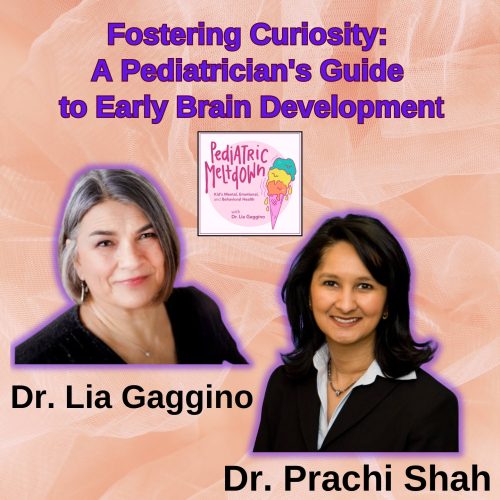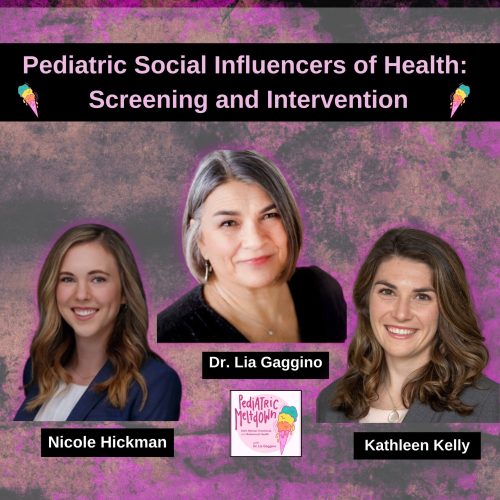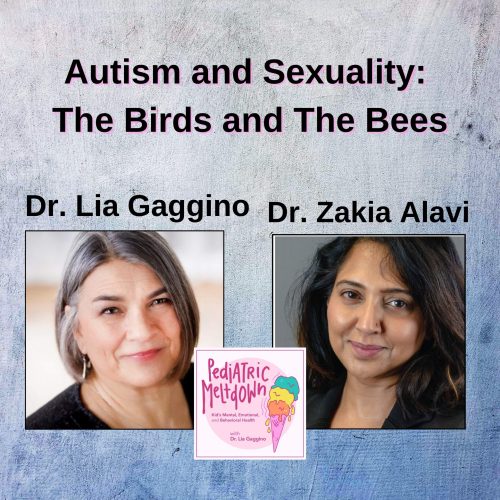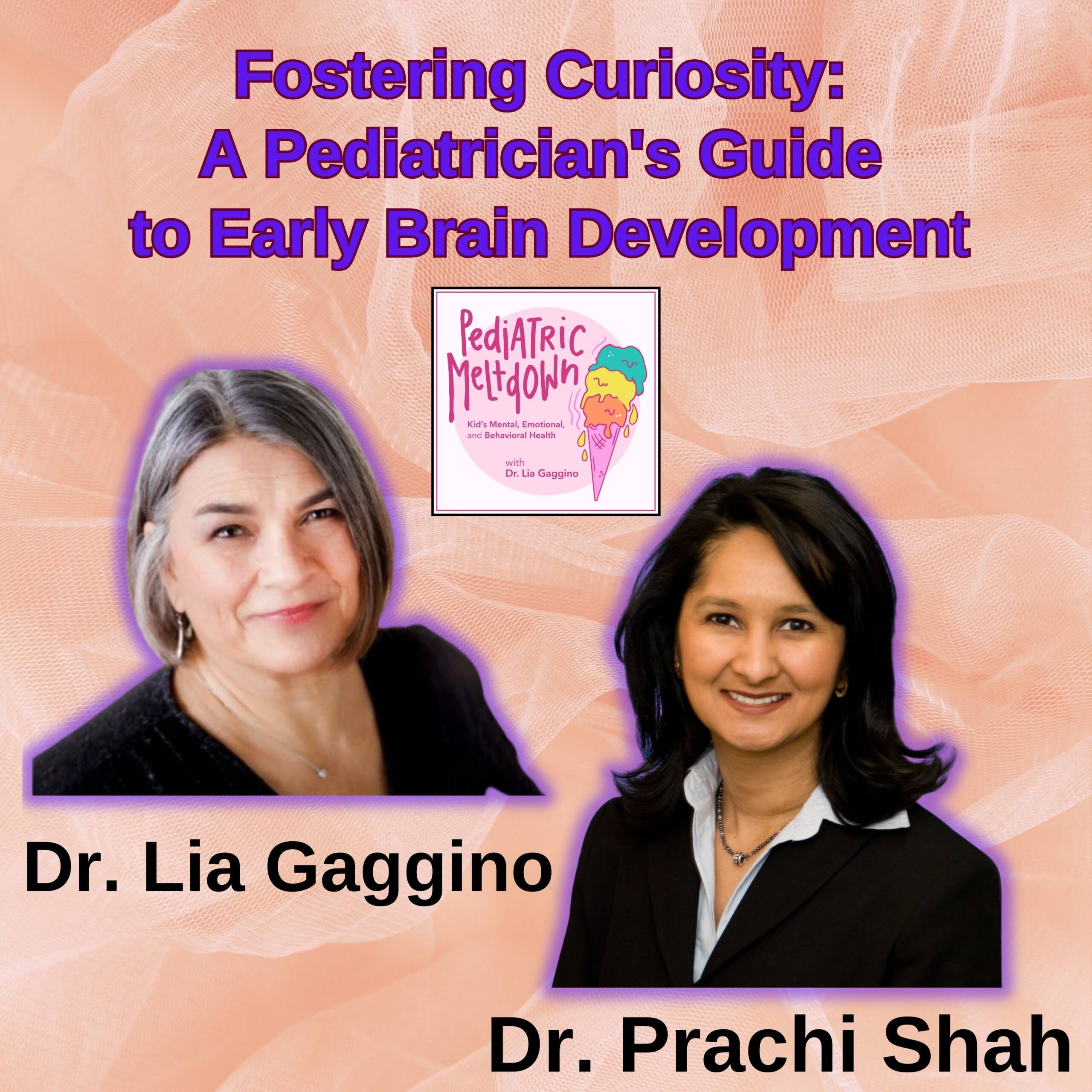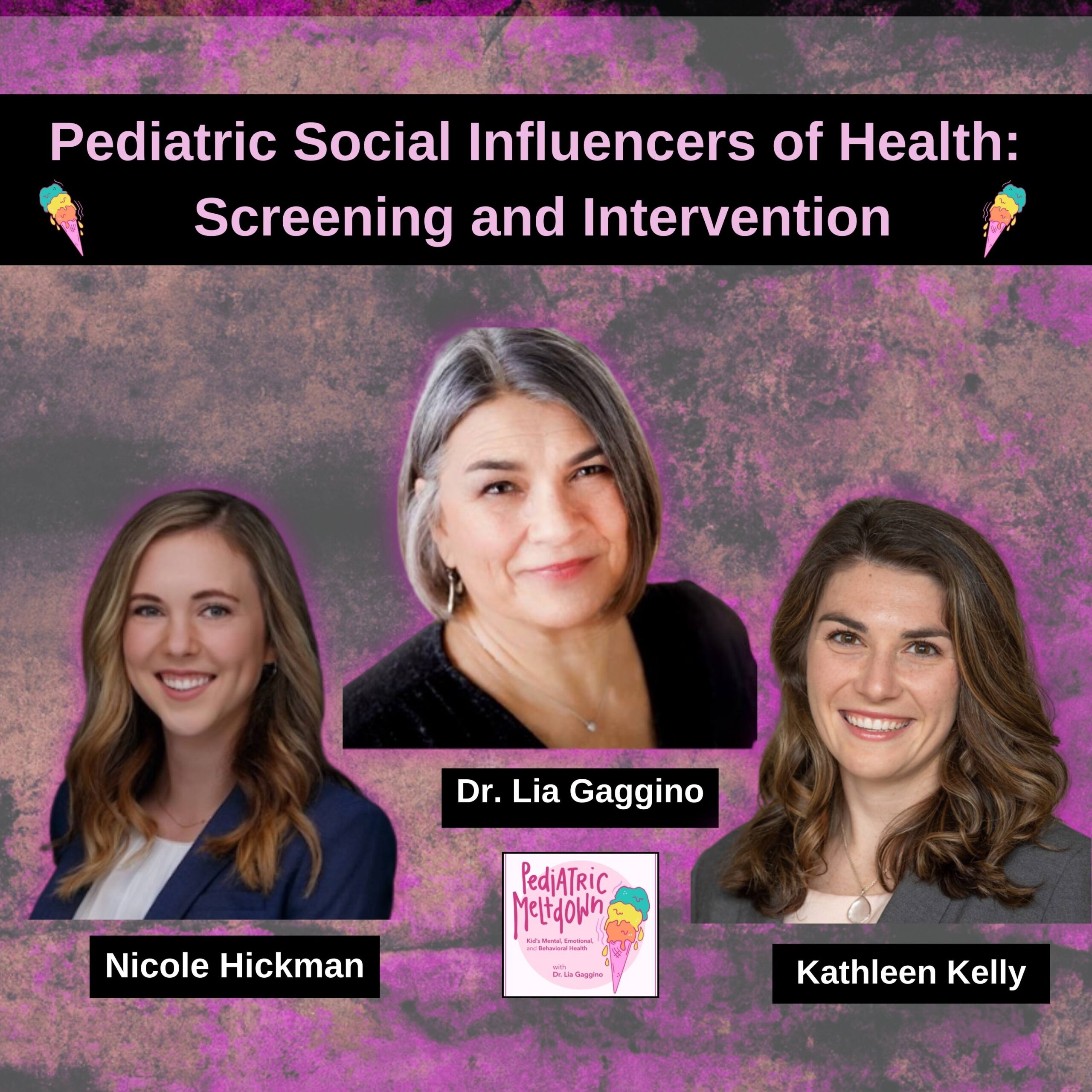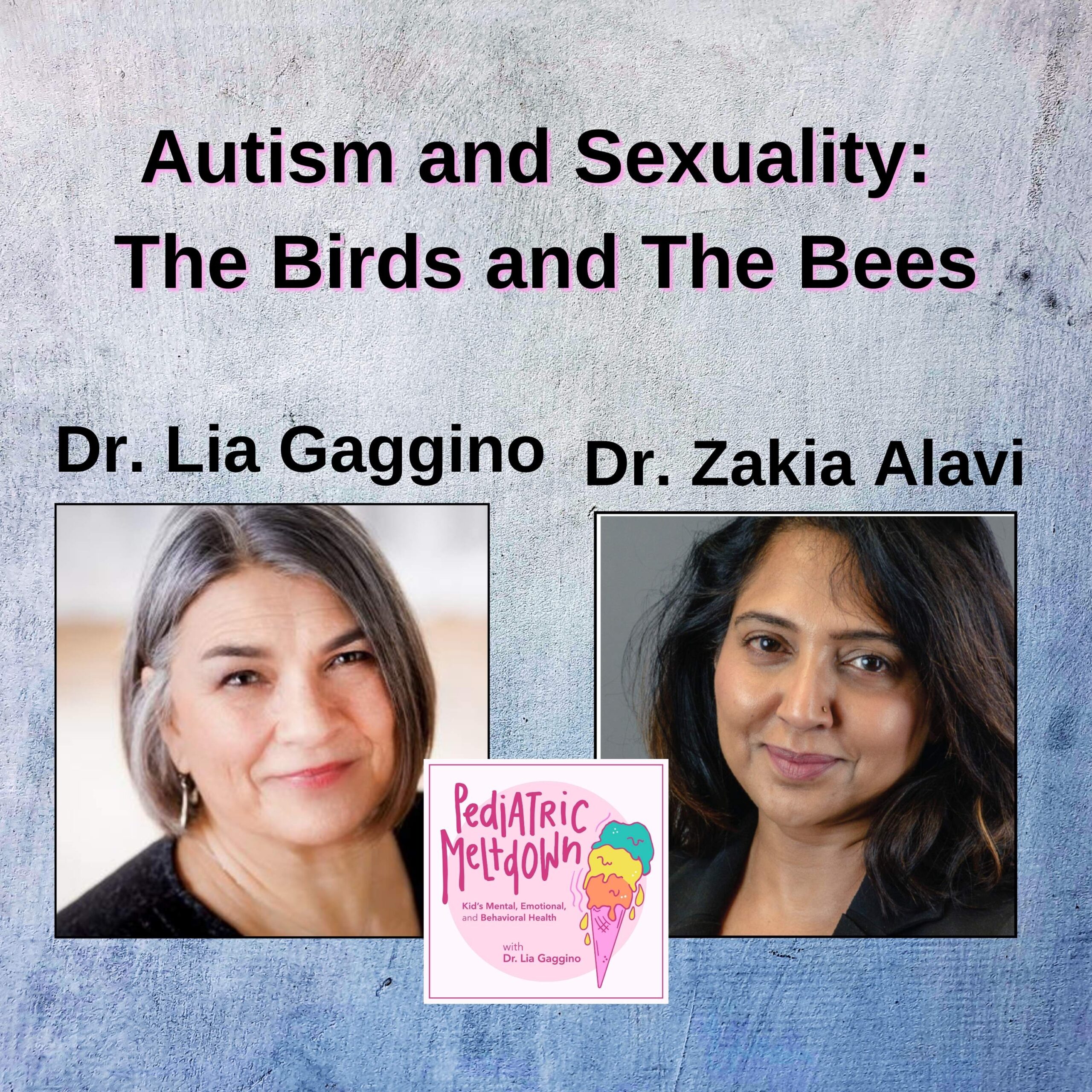Teen Dating Violence: The Role of Pediatric Clinicians:
Did you know that 1 in 3 young people in the US have experienced or survived dating violence? In a candid and crucial conversation on Pediatric Meltdown, host Dr. Lia Gaggino is joined by guest Dr. Lenore Jarvis to tackle the sensitive issue of adolescent relationship abuse (ARA).
From identifying red flags to discussing prevention strategies and resources, this eye-opening episode provides essential insights for parents, educators, and healthcare professionals working with adolescents. Dr. Jarvis will take a deep-dive into the different types of ARA, the power dynamics at play, and the impact of abuse on mental and physical health will highlight the importance of documentation, trauma-informed care, and healing-centered engagement, emphasizing the holistic experience of addressing trauma.
With the imperative need for universal screening and education, and the complexities of navigating disclosures and mandatory reporting, our episode provided essential guidance for healthcare professionals. This episode is another example of Dr. Gaggino’s never ending dedication to unravel critical issues affecting pediatric care, empowering clinicians to make a positive impact on the lives of young people.
[00:33 -15:23] Understanding the Impact of Adolescent Relationship Abuse (ARA) on Teen Health
- Adolescents experiencing ARA are at an increased risk of contracting sexually transmitted infections (STIs).
- Victims of adolescent relationship abuse may suffer from mental health issues, including depression.
- There is a notable link between ARA and suicidality in teenagers, potentially leading to life-threatening situations.
- Adolescent relationship abuse often leads to increased school dropout rates, affecting education
[15:24 – 27:55] Strategies for Healthcare Professionals to Support Teens in Abusive Relationships
- ARA strategies must respect a teen’s comfort and safety in sharing, not always certain in a clinic.
- Adolescents’ confidentiality is vital, needing careful management by healthcare workers.
- Feelings of isolation and shame can deter teens from seeking help or revealing abuse.
- Offering ARA resources during visits offers consistent support, regardless of disclosure.
[27:56 – 42:08] Effective Approaches to Adolescent Relationship Abuse Disclosure
- Providers encourage teens to report abuse by discussing common issues.
- Healthcare pros must immediately validate a teen’s ARA disclosure.
- Careful measures protect intimate violence reports in patient records.
- Keeping the abuser from patient files is vital to the teen’s safety and privacy.
[43:09 – 55:59] Implementing Early Educational Strategies for Healthy Relationships
- Elementary education focuses on identifying traits of positive and negative friendships.
- Teaching young kids about good relationship dynamics prepares them for future romantic talks.
- Talks on healthy romance in adolescence build on earlier friend relationship lessons.
- Early healthy relationship education equips children to handle teen romantic challenges.
[56:00 – 01:07:08] Closing segment Takeaway
Links to resources mentioned on the show
Healing Centered Engagement:
The Future of Healing: Shifting From Trauma Informed Care to Healing Centered Engagement
PM179 notes resources
Local Resources
State Coalitions:
NCADV | National Coalition Against Domestic Violence
National Resources for Adolescents and Adult Allies
ARA:
National Dating Abuse Helpline 1-866-331-9474, chat online at loveisrespect.ort, or test “loveis” to 22522
General ARA and healthy relationship information:
Break the Cycle: Home – Break The Cycle
Cyber Abuse:
MTV | Reality TV Shows, Pop Culture & Music Videos
Sexual Assault:
National Sexual Assault Hotline: 1800-656-4673, RAINN | The nation’s largest anti-sexual violence organization
National suicide Prevention lifeline: 1800-273-8255 (TALK),
The Trevor Project – Crisis & Suicide Prevention Lifeline for LGBTQ+ Youth:
The Trevor Project | For Young LGBTQ Lives , 1866-488-7386
It Gets Better Project:
Home Trans Lifeline: Home – Trans Lifeline
Adolescent Reproductive and Sexual Health (including contraception options):
Bedsider:
Bedsider Birth Control Support Network
Advocates for Youth: Advocates for Youth
Runaway Youth/Youth Abscondence: National Runaway Safeline: National Runaway Safeline | National Runaway Safeline (1800-786-2929
Resources for Health Care Providers
Futures without Violence:
Futures Without Violence , Domestic violence survivor health, safety and empowerment – IPVHealth
Role of the Pediatrician in Youth Violence Prevention
Role of the Pediatrician in Youth Violence Prevention
Other episodes you may like:
https://pediatricmeltdown.com/episodes
110 LGBTQ+ Youth Sexuality: Inclusive Parent-Child Conversations
143 Moral Injury and Well-being: Channeling Mr. Rogers
158 Preventing Youth Suicide: Risk Assessment and Management
Key quotes for Twitter:
Perhaps the goal of addressing Intimate partner violence or adolescent relationship abuse in the clinical setting should not be disclosure or detection of abuse….Dr. Lenore Jarvis on adolescent Relationship Abuse Screening
But there are limitations to the universal screening approach. I think a big one is, a lot of these studies and clinical practices have occurred in adult settings, usually for women above the age of 18 in a place where you can get an individual alone and there are no mandatory reporting requirements…. Dr. Lenore Jarvis on the universal screening approach.
THANK YOU FOR YOUR SUPPORT!
Pediatric Meltdown was listed as a Top 20 Pediatric Podcast on FeedSpot.
If you’d like to connect with me, you can Tap the “What Are Your Thoughts” button at the top of the notes or you can find me on LinkedIn, Facebook, Instagram, and Twitter, or email me at [email protected]. To learn more about me visit https://www.pediatricmeltdown.com/
LOVE WHAT YOU HEARD? Leave us a 5-star review so we can continue to provide you with great content. Share this episode and help people know more about children’s health and well-being.

